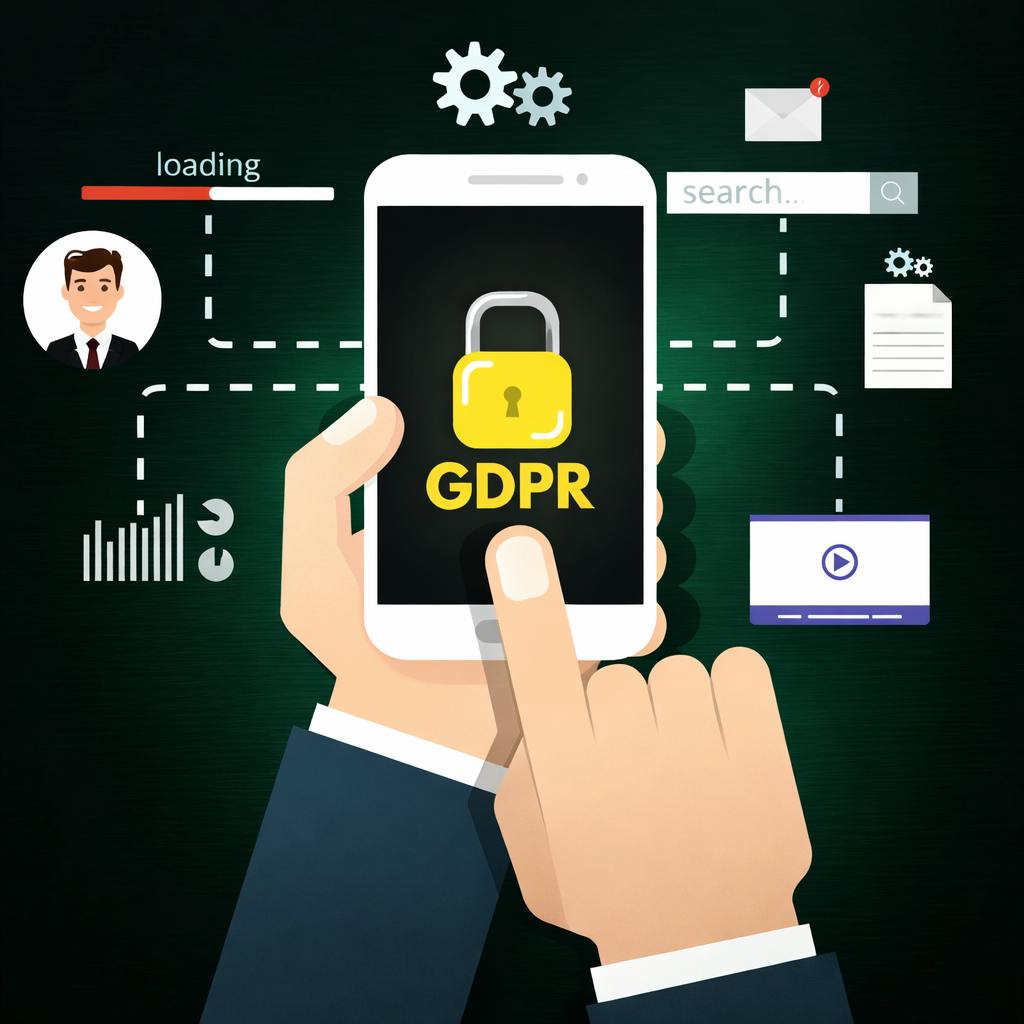Why Ethical Data Practices are a Competitive Advantage in 2025
Is your organization leveraging ethical data practices as a strategic asset? The evidence shows that companies treating data ethics as a core business function rather than a compliance burden are gaining significant competitive advantages in today's privacy-conscious marketplace.
The global data privacy landscape in 2025 is defined by escalating consumer mistrust, sophisticated cyberthreats, and a patchwork of stringent regulations. Amid this environment, ethical data practices have emerged as more than just compliance obligations—they are now critical drivers of business success. Organizations that prioritize transparency, accountability, and user-centric data governance are outperforming competitors in customer retention, brand loyalty, and market differentiation.
Is your organization leveraging ethical data practices as a strategic asset? The evidence shows that companies treating data ethics as a core business function rather than a compliance burden are gaining significant competitive advantages in today's privacy-conscious marketplace.
Why Ethical Data Practices Matter in 2025
The business case for ethical data practices has never been stronger, with measurable impacts on revenue, retention, and reputation.
Consumer Trust as Currency
In today's data economy, consumer trust has become a tangible business asset. Recent research from PrivacyTrust (2024) shows that 87% of consumers now prioritize privacy when choosing products and services. This shift in consumer behavior directly impacts bottom-line results—companies embedding ethical data practices into their core operations report customer retention boosts exceeding 25% (LinkedIn, 2024).
A compelling example comes from a major telecommunications provider that completely overhauled its data strategy to include real-time user controls and transparent reporting. The result? A 30% increase in customer engagement and significantly reduced churn rates. This transformation illustrates how ethical data practices translate directly into business value.
Regulatory Survival
The cost of neglecting data ethics extends beyond lost customers. Regulatory penalties have reached unprecedented levels, with Blackbaud's $6.75 million settlement in 2024 highlighting the financial consequences of poor data practices.
Modern privacy frameworks including India's PDPA, California's CCPA, and the EU's GDPR now demand proactive ethical frameworks rather than reactive compliance measures. This regulatory environment creates both risks and opportunities—organizations with robust ethical data practices not only avoid penalties but gain operational advantages through streamlined compliance processes.
Market Differentiation
Forward-thinking organizations have recognized that ethical data practices represent a powerful brand differentiator. Public sector entities like Amsterdam's municipal authority and Brent Council have led the way by implementing Algorithm Registers that provide unprecedented transparency into automated decision-making.
In the private sector, companies like Visa and LinkedIn have redesigned their consent interfaces to transform privacy from a legal obligation into a selling point. These simplified, user-centric approaches don't just satisfy legal requirements—they create positive interactions that strengthen brand perception and customer loyalty.
Pillars of Ethical Data Practices Driving Competitive Edge
Building a competitive advantage through ethical data practices requires implementing four key strategies that go beyond basic compliance.
Radical Transparency
Leading organizations have moved beyond minimal disclosure toward comprehensive transparency initiatives. The most effective approach includes publishing quarterly Data Transparency Reports that detail:
Data collection purposes and methodologies Third-party sharing practices and safeguards Security protocols, including quantum-resistant encryption measures Data retention timelines and deletion procedures
The impact of this approach is significant—a financial services firm implementing this level of transparency saw 30% higher customer engagement after adoption (LinkedIn, 2024). This demonstrates that transparency isn't just about meeting obligations—it actively builds trust that translates to business results.
User-Centric Control
Modern consumers expect granular control over their personal information. Organizations gaining competitive advantage have implemented comprehensive "Data Control Centers" that allow users to:
- View and delete collected data at any time
- Adjust consent preferences in real time as priorities change
- Opt out of AI training datasets specifically
- Request data portability in usable formats
A global retailer implementing these user-centric controls increased data-sharing opt-ins by 40% (LinkedIn, 2024). This counterintuitive result illustrates an important principle: when consumers trust your data practices, they're more willing to share information they believe will be handled responsibly.
Ethical AI Governance
As artificial intelligence becomes increasingly embedded in business operations, ethical AI governance has emerged as a critical differentiator. Organizations leading in this area implement comprehensive frameworks that address algorithmic bias, decision transparency, and ongoing monitoring.
Industry standards are evolving rapidly, with certifications like IEEE's FairData Seal providing independent validation of ethical AI practices. These certifications audit algorithms for bias, transparency, and consent integrity—creating trustworthy benchmarks that resonate with both consumers and business partners.
Amsterdam's Algorithm Register stands as a compelling case study in AI transparency. By providing public visibility into automated decision-making systems, the city has established a new benchmark for institutional trust. This approach has not only improved public perception but streamlined operations by reducing privacy-related inquiries and complaints.
B2B Value Proposition
While consumer trust gets significant attention, ethical data practices deliver equally powerful advantages in business-to-business relationships. Forward-thinking organizations now position their ethical frameworks as differentiators when competing for enterprise contracts.
This strategy proves particularly effective in highly regulated industries and public sector engagements. A notable example comes from a technology firm that secured several government contracts specifically by demonstrating GDPR-compliant AI training methods and comprehensive bias-mitigation protocols. Their ethical approach wasn't merely compliant—it addressed the procurement team's concerns about downstream liability and public perception.
Companies with documented ethical data practices increasingly find themselves preferred partners in business ecosystems where data sharing is essential. By reducing the compliance burden for partners, these organizations create tangible value that translates to stronger business relationships and expanded opportunities.
Future Outlook: Ethics as Innovation
By 2026, businesses will compete on ethics-as-a-service models that transform data practices from cost centers to revenue generators.
Emerging Ethical Frontiers
Decentralized Data Trusts represent a paradigm shift in data governance. These user-owned data pools, exemplified by Singapore's 2025 pilot program, will fundamentally disrupt corporate data hoarding models. Organizations that adapt early to this trend will maintain access to crucial data streams while competitors struggle with diminishing information resources.
Neuroethical Frameworks will become increasingly relevant as brain-computer interfaces like Neuralink advance into commercial applications. Companies establishing leadership in neural data consent standards will secure both regulatory advantages and consumer trust in this sensitive domain.
Dark Pattern Bounties indicate how compliance monitoring is evolving. Platforms like EthicalUI.org now crowdsource the identification of manipulative interfaces, creating powerful incentives for ethical design. This trend will accelerate as regulatory penalties for dark patterns increase, forcing widespread redesigns of non-compliant user experiences.
Key Takeaways for Businesses
Organizations seeking competitive advantage through ethical data practices should focus on three strategic priorities:
Embed Ethics Early
Integrate privacy considerations into the earliest stages of product design rather than treating them as retrospective compliance requirements. This approach not only reduces costly redesigns but creates more seamless user experiences that build trust from the first interaction.
Companies leading in this area employ cross-functional teams that include ethics specialists alongside product designers and engineers. This collaboration ensures ethical considerations shape products from conception through implementation, creating inherently trustworthy offerings rather than retrofitted solutions.
Monetize Trust
Forward-thinking organizations now charge premium pricing for "ethical data use" guarantees. GDPR-certified cloud services command price premiums of 15-20% over standard offerings, demonstrating the tangible market value of ethical commitments.
This approach transforms data ethics from a cost center to a revenue driver, creating powerful business incentives for continued investment in ethical frameworks. As consumer privacy awareness continues to grow, this premium positioning will likely strengthen rather than diminish.
Leverage Certifications
Third-party validations like the FairData Seal and ISO 31700 provide credible verification of ethical practices. These certifications serve as powerful market signals that reduce consumer skepticism and streamline business development in privacy-sensitive sectors.
Organizations should pursue relevant certifications strategically, focusing on those with the strongest resonance in their target markets. The most effective approach combines certification with transparent communication about what these standards mean in practical terms for customers and partners.
Building an Ethics-Driven Data Future
Ethical data practices are no longer optional—they have become the cornerstone of sustainable growth in 2025. Companies like Apple (with its privacy-first marketing) and Dubai International Airport (implementing innovative biometric consent tools) demonstrate that transparency and user control directly translate to revenue growth and business resilience.
As data becomes humanity's most valuable currency, ethical stewardship increasingly separates industry leaders from laggards. The evidence is compelling—83% of consumers now pay a premium for brands with verifiable ethical data practices (PrivacyTrust, 2024).
Organizations that embrace this shift will not merely comply with evolving standards but thrive through differentiation in increasingly competitive markets. By transforming ethical data practices from compliance requirements to strategic assets, forward-thinking businesses are securing their position in the data-driven economy of tomorrow.
Get Started For Free with the
#1 Cookie Consent Platform.
No credit card required

California DROP Act (CPRA) 2026: Compliance Requirements and DSAR Automation
California just made consumer privacy deletion requests unavoidable at scale. Starting August 1, 2026, every registered data broker must connect to a state-operated platform, retrieve consumer deletion requests every 45 days, and process them—automatically, verifiably, and repeatedly. Miss a deadline and face $200 per-request daily penalties. Fail to propagate deletions to vendors and face enforcement scrutiny that has already produced settlements exceeding $1.5 million.
- Data Protection
- Privacy Governance

GDPR Compliance for Mobile Apps (2026): Consent, SDKs, and Practical Implementation
Your mobile app displays a consent banner when users first launch it. Your privacy policy lists the data you collect. Your app store listing includes Apple's Privacy Nutrition Label. And yet, when regulators test your app with network monitoring tools, they discover that analytics SDKs are firing before users interact with the consent interface, advertising identifiers are being transmitted without explicit opt-in, and third-party trackers are active despite users declining consent.
- Legal & News
- Data Protection

AI Governance: The Complete Enterprise Guide to Risk, Compliance, and Accountability
Your organization uses AI to screen job candidates, personalize customer experiences, and automate credit decisions. Six months ago, these were software features. In 2026, they're regulated AI systems subject to the EU AI Act's high-risk classification—requiring technical documentation, logging infrastructure, human oversight mechanisms, and formal risk assessments before deployment. Non-compliance penalties reach €35 million or 7% of global revenue.
- Legal & News
- Data Protection

